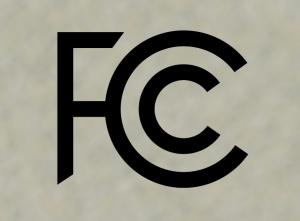Federal Court Rolls Back FCC’s Price Cap Protections

In a split 2-1 vote by a three-judge panel of the U.S. Court of Appeals for the District of Columbia Circuit, a rate cap placed by the Federal Communications Commission (FCC) on intrastate prison inmate calls has been lifted. The court ruled that while the FCC does have jurisdiction over pricing for interstate calls, that authority does not extend to intrastate calls originating from prisons and terminating at locales within the same state.
The court's decision was decried by various advocacy groups, which had long argued that exorbitant rates charged for calls from prisoners were discriminatory and constituted an undue financial hardship on persons who often can least afford to pay them. They alleged that the high prices for correctional facility calls made it much more difficult for inmates to remain in touch with family members. As a result, they averred, the high rates were a barrier to an inmate's rehabilitation and reintroduction into society upon release.
There has been a growing trend in recent years for prisons to be run by private, nongovernmental entities, with payphone services at such institutions being awarded to private contractors as well. Subject to little regulation, those private telecom companies were free to charge whatever they wanted. Some reportedly were billing prison calls at a rate of upwards of $10 per minute, leading prisoner rights groups to begin lobbying the FCC to set caps on the rates that can be charged.
After a years-long battle, the FCC, under the Obama administration, finally complied with the requests, announcing limits on intrastate calling rates for inmate calls. But the new price ceilings were protested by affected prison telecom service providers, who asserted both that the FCC had no standing to rule on purely intrastate calls and that the formula on which the agency had relied in calculating the caps was flawed.
The appeals proceeding had not yet concluded when the new presidential administration came into office, at which time there was a change in membership on the FCC. With a different party now having a majority of the commissioner seats, the FCC reversed course on prison calling rates. While the FCC stopped short of actually rescinding the rate cap rules put in place in 2015, it did decide to cease defending the FCC's previous position in the case before the court.
In issuing its decision in the matter, the appellate court referenced the fact that the FCC had now "abandoned its support of the intrastate rate caps." But, the court said, regardless of the FCC's refusal to defend the price cap rule, it was apparent that the underlying FCC order was "legally infirm." The court explained that the FCC's 2015 ruling had cited Section 276 of the Telecommunications Act of 1996 as the basis for its decision, which section pertains to payphone service and FCC jurisdiction to assure that payphone rates are just and reasonable.
The court stated that it was cognizant that most inmate calling occurs at pay telephones. Thus, the court said, it understood why the FCC had relied on Section 276 in developing its price cap rule. But at the same time, the court noted that Section 276 could not be read alone. Rather, the court held, it must be read in tandem with Section 201, which addresses the scope of the FCC's authority.
According to the court, when the two sections are examined together, it becomes clear that while the FCC has authority to initiate caps on interstate calls, it is not permitted under the law to do the same with intrastate calls. The court asserted that the FCC had inappropriately construed Section 276 as taking precedence over Section 201, when, in fact, it should have been the other way around. Finding that the agency had conflated the authority granted it under the two sections, the court ruled that while the FCC was afforded broad discretion in assuring fair compensation and pricing for payphone services, it still was prevented from establishing price caps on payphone calls that are wholly intrastate in nature.
The court pointed out that the 1996 Act explicitly provides only for FCC pricing authority over interstate calls. Despite determining that the rate cap rule for intrastate prisoner calls was invalid on its face as violating Section 201, the court nevertheless also discussed arguments on the manner in which the FCC had devised the price ceilings. The court stated that the FCC had presented no grounds for its use of industry-wide cost data in computing the caps. Deeming it more apropos to have used payphone-specific cost information, the court declared the 2015 rule arbitrary and capricious and not backed by reasoned decisionmaking.
The court ended by observing that regardless of whether the intrastate rate caps adopted by the FCC would have effectuated a "desirable social policy," the agency could not use the argument that "the ends justify the means" to get around its lack of authority over intrastate calling rates. The court told the FCC that it cannot simply ignore the statutory strictures on its jurisdiction in order to "advance its preferred correctional policy." Global Tel*Link v. Federal Communications Commission, Nos. 15-1461 et al., June 13, 2017 (D.C.Cir.).



